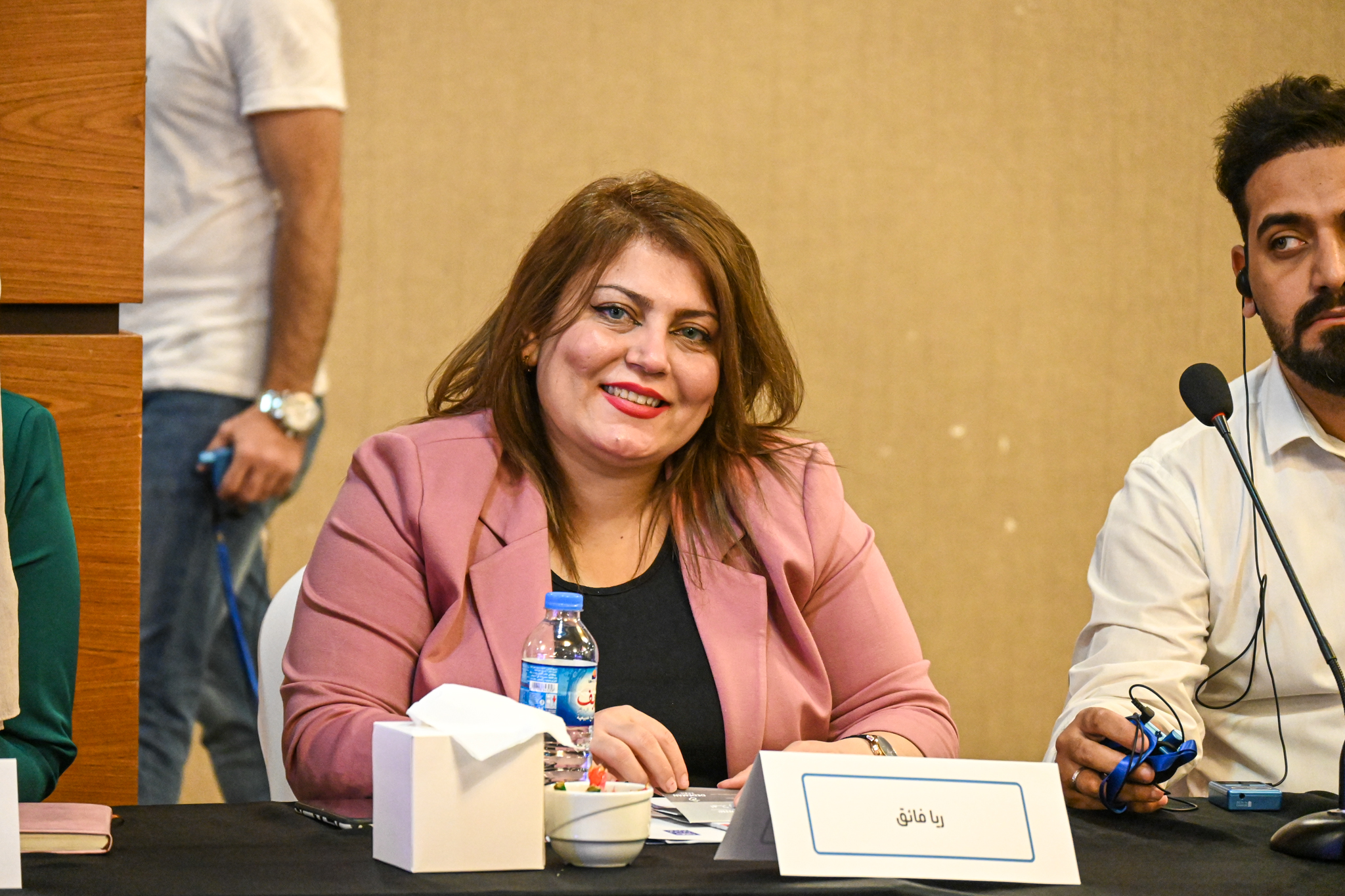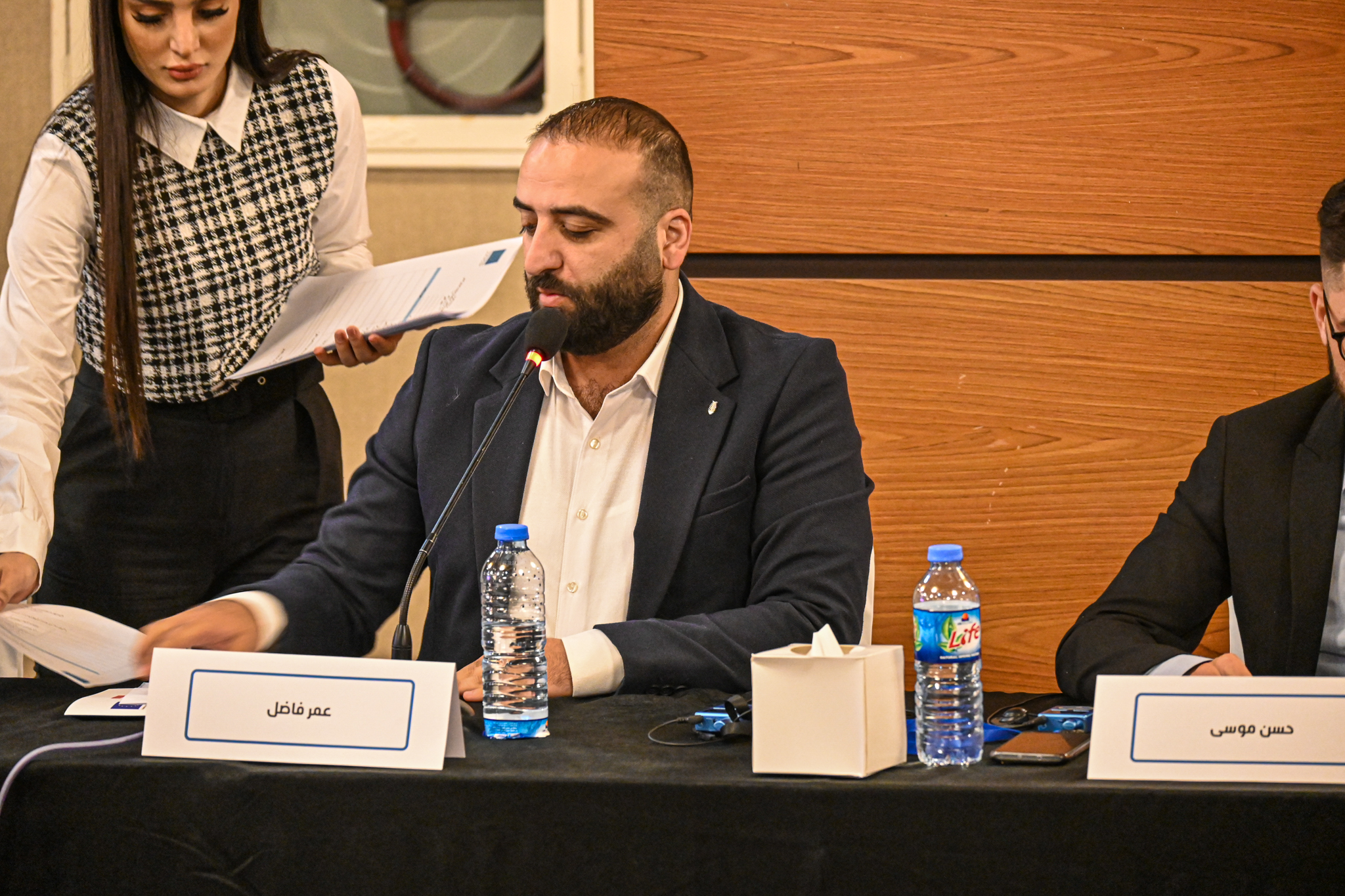Iraqis speak out about corruption
December 13, 2022
In 2019, young Iraqis took to the streets to demand an end to corruption. Even though Iraq is a middle-income country that significantly relies on revenue from the oil sector. As the demonstrators emphasized, those revenues do not find their way to benefit its people, resulting in a lack of basic services, a breakdown in the citizen-to-state social contract and rising unemployment.
Most importantly, corruption affects the well-being of individuals, families, and communities.
Today, as Iraq recovers from years of instability, it is critical more than ever to engage with everyone to tackle corruption. On Anti-Corruption Day, Iraqis speak up about why everyone has a responsibility to bring corruption to light.

"We need equal and transparent access to information to ensure everyone participates in the fight against corruption. It is an important tool by which we can increase reporting and identify corrupt practices and cases. It also increases institutional accountability and transparency. It creates an environment of trust – nothing is hidden from the public eye."
- Farah Thaer Hassan, 33, Chairperson for Strive Organization for Democracy and Human Rights based in Baghdad.

"Corruption affects us all, especially those who are economically weaker. It directly affects our access and sometimes disrupts basic services such as health, education, water and electricity. As citizens, we must voice our concerns and demand accountability. This is the only way we will recover from all the conflict Iraq has faced."
- Akram Ahmed, 26, is a daily wager based in Jalawla, Diyala.

"Corruption is affecting Iraq's development. It affects our access to economic opportunities and jobs. As young women, we can see how corruption impacts us differently. Especially since we already lack equal opportunities, corruption only makes it harder for us. Therefore, I would like to see institutions in Iraq take action and restore public trust."
- Ayat Adnan, 20, is a marathon runner and student at a sports academy in Khanaqin, Diyala.

"As journalists and citizens, we are responsible for informing people with accurate and reliable information. We can bring to light corruption issues and build public pressure to act. However, we must do this responsibly and in a manner that does not cause disruption but encourages action and change."
- Issa al-Atwany, is a journalist and reporter for Al Hurra in Babil.
"Restricting freedoms of expression and speech will only weaken our fight against corruption. Therefore, we must continue to build a safe environment for journalists to investigate, civil society to report, and citizens to speak up. We must protect those that dare to report and speak up. This is the only way we can hold institutions accountable. After all, it is these same institutions that exist to serve us – the people of Iraq."
- Raya Fayak, 37, is Executive Director of the Press Freedom Advocacy Association based in Baghdad

"Corruption can risk people's safety and access to justice. Therefore, as citizens, we must speak up to actually change. We all want to see Iraq grow and succeed. However, corruption hampers our ability to develop and flourish. Therefore, this fight will only be possible if we put our differences aside and unite to fight corruption."
- Omar Fadel Saleh, 37, Executive Director of Al-Haq Foundation for Human Rights based in Anbar.
The EU and UNDP are currently collaborating on the 'Anti-Corruption and Arbitration in Iraq' project, which builds on Iraq's efforts to improve transparency and accountability across state institutions. The project supports Iraq's fight against corruption by supporting institutions to revise its anti-corruption laws and providing specialized on-demand training for corruption investigators and integrity judges.

 Locations
Locations



